Caravan of migrants reaches US border, temporarily turned away by Border Patrol
Dozens of migrants from Central America reached the border on Sunday.
A caravan of people from Central America seeking asylum in the United States reached the U.S.-Mexico border at San Diego where Border Patrol authorities said they are unable to process them due to space constraints.
The Border Patrol facility at San Ysidro in San Diego won't be processing any more people hoping to enter the U.S. "until space becomes available," U.S. Customs and Border Protection Commissioner Kevin McAleenan said in a statement Sunday afternoon.
McAleenan added that once space opens up and "resources become available," officers "will be able to take additional individuals into the port for processing."
Alex Mensing, an organizer with an advocacy group supporting the roughly 100 travelers at the border, told ABC's "Start Here" podcast on Sunday that caravan members were told that "twenty people can wait next to the door, but they would not be processed, and they would not say how long we will have to wait."
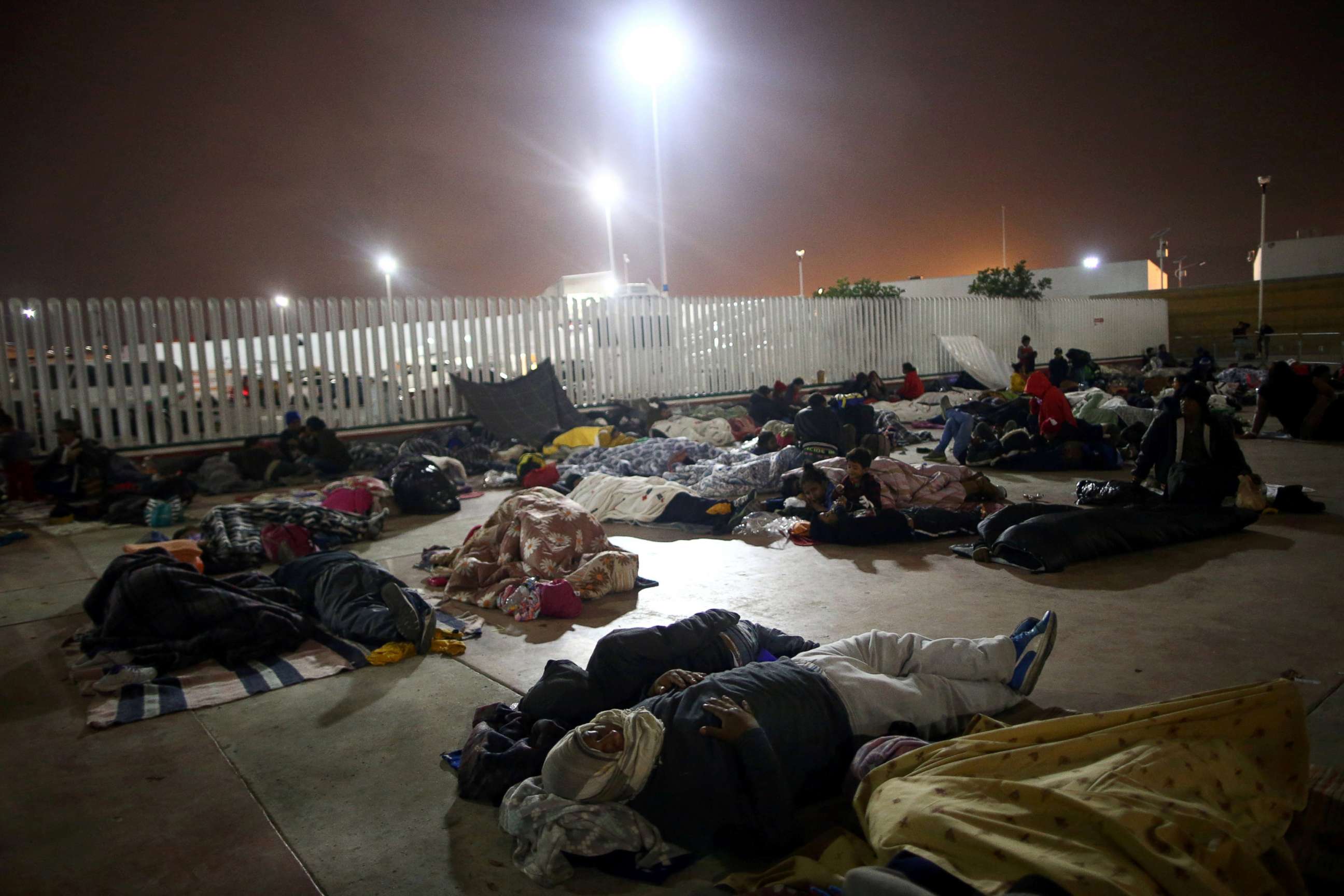
"We've got blankets, we've got people bringing clothing and food from the community," said Mensing of Pueblo Sin Fronteras. "The police have set up kind of a ring of fencing around it. Everyone is out here, organizing a security commission, and everything they need to be able to spend the night."
As of 9 p.m. local time Sunday, he said, "No one has been processed at all. Nobody has set foot in the United States."
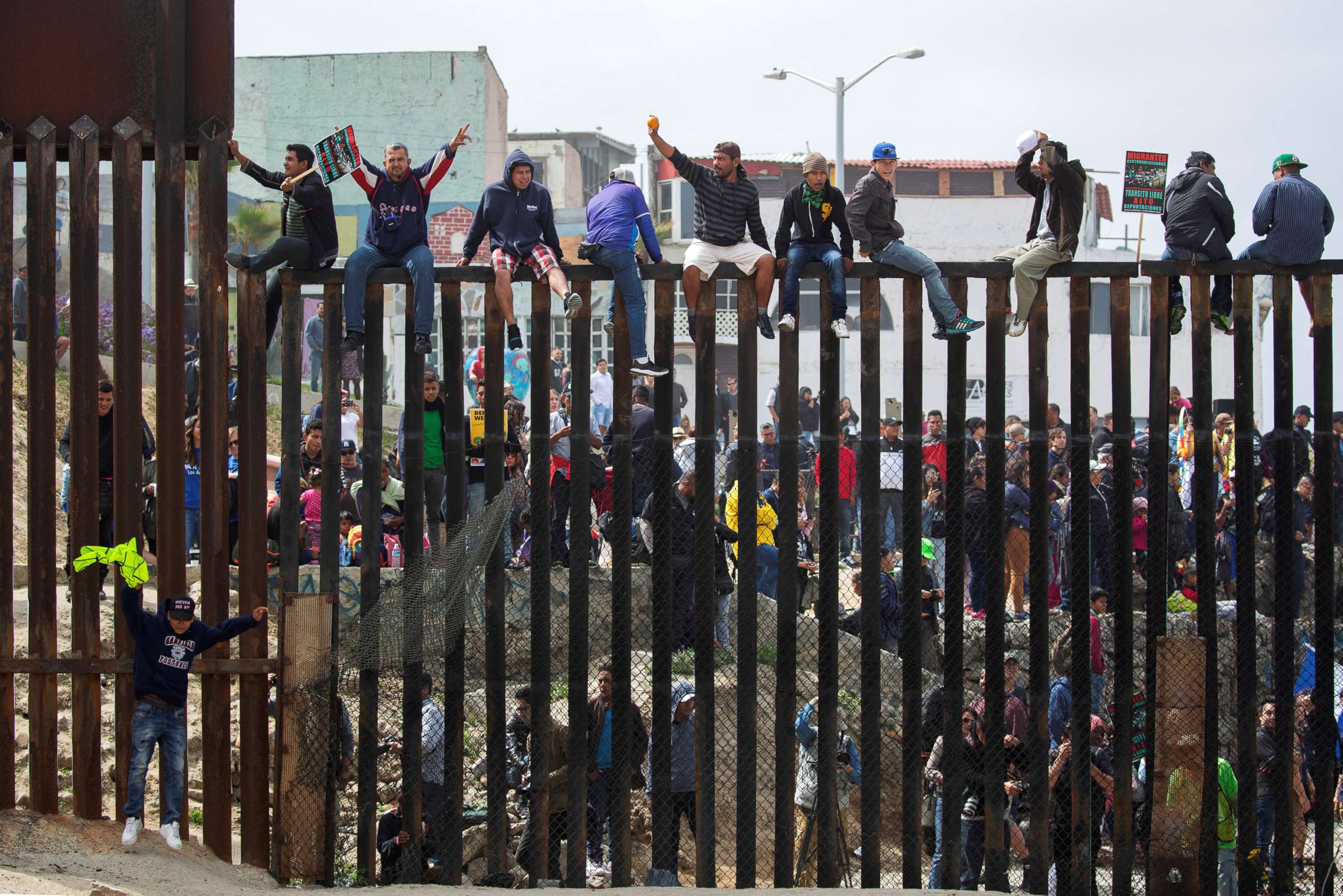
If admitted, the migrants would be taken to a detention center elsewhere and then interviewed by an asylum officer in what is called a "credible fear interview."
The news of a delay for the group of Central Americans who traveled through Mexico to what is the busiest border crossing in the U.S. was met with some frustration and anger.
One migrant blamed the U.S. government for failing "to get sufficient agents and resources" to process the refugees.
"The United States government is the most powerful government on the planet," the migrant said. "One of the most richest governments on the planet. We can build a base in Iraq in under a week, [yet] we can't process 200 refugees? I don't believe it."
Before it was announced that San Ysidro was at capacity, an attorney representing the caravan told ABC News that approximately 150 to 180 people would present at the official port of entry and seek asylum today.
She said most were children.
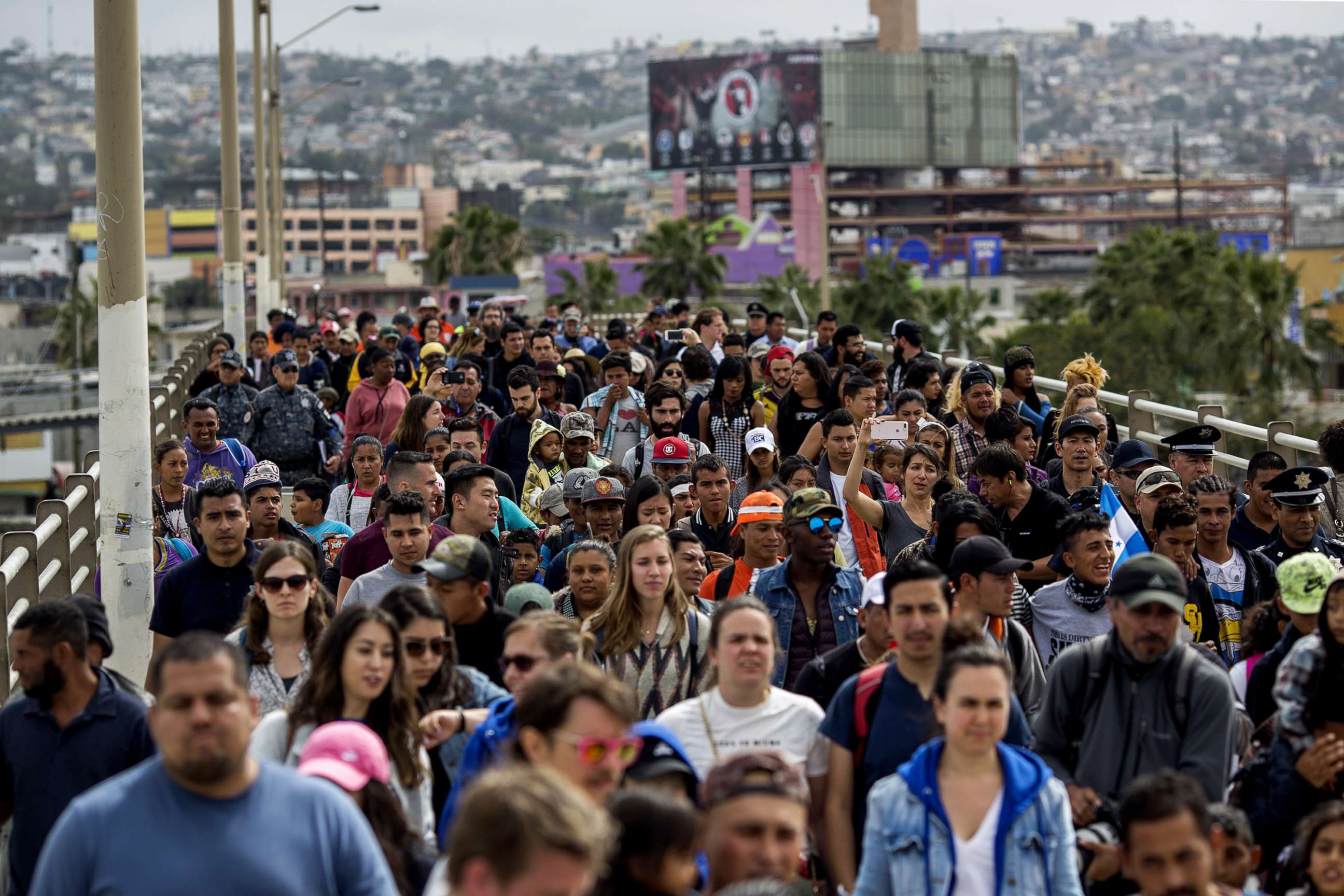
"The majority of those that will be presenting are children coming with their families," said Nicole Ramos, an attorney with Al Otro Lado, which directs the Border Rights Project. "Some of them are coming with just their mothers, some of them are coming with just their fathers, and then some of them are coming with both parents. We also have several children who are unaccompanied minors who do not have parents or family to take care of them, and they will obviously be coming by themselves."
The border at San Ysidro has for weeks been built up as a flashpoint where the caravan of emigrants hoped to make the 15-minute walk over the pedestrian bridge and gain entry into the U.S.
Nearly 400 migrants -- many of them mothers carrying infants and children -- in old school buses arrived in Tijuana last week. Some secured pro bono legal counsel and have been staying in shelters in Tijuana near the U.S. border in San Diego.
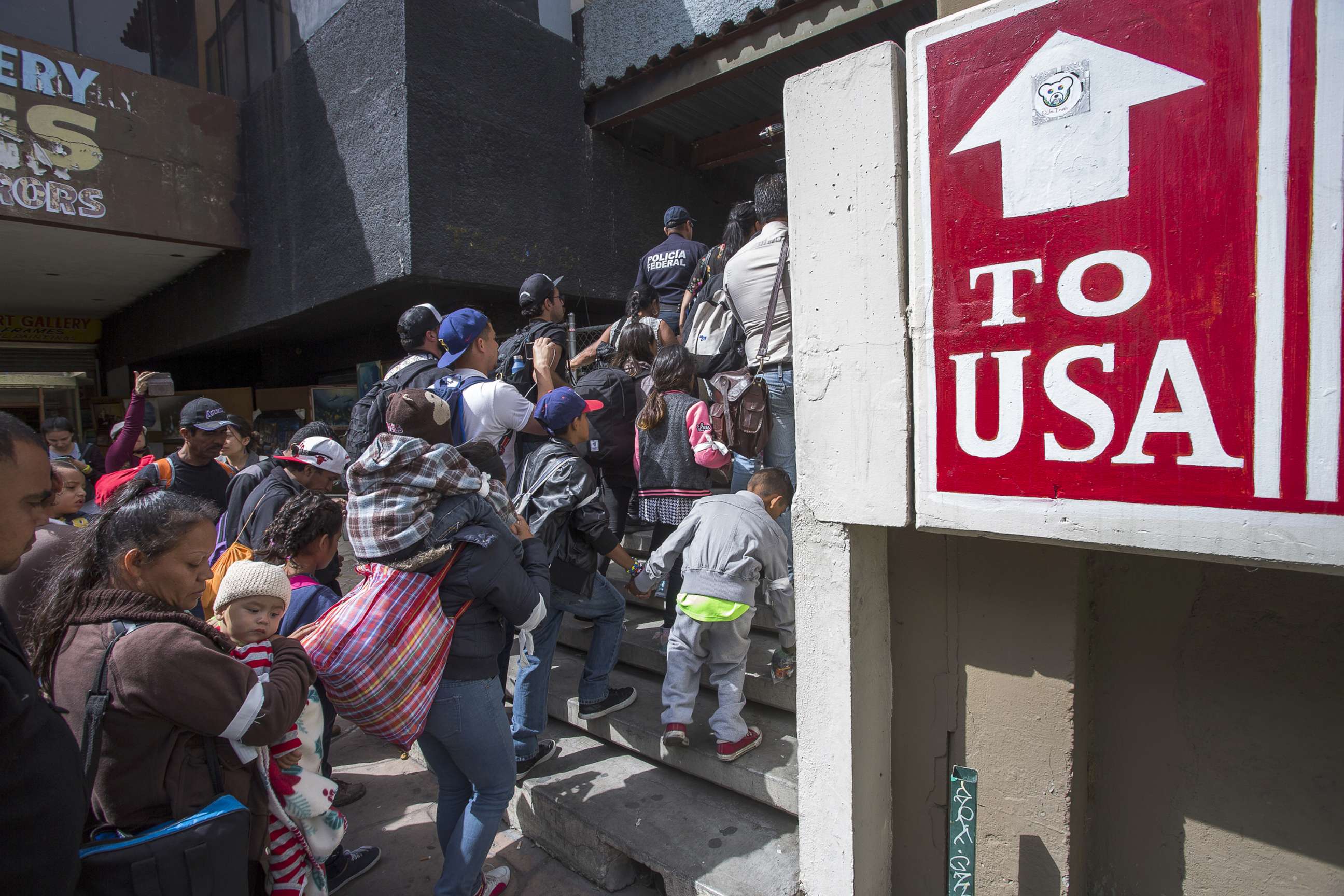
The vast majority of those in the caravan come from violence-ravaged Honduras.
Attention on the group's flight and plight has reached a fever pitch, with President Donald Trump painting the caravan as a direct threat to the U.S.
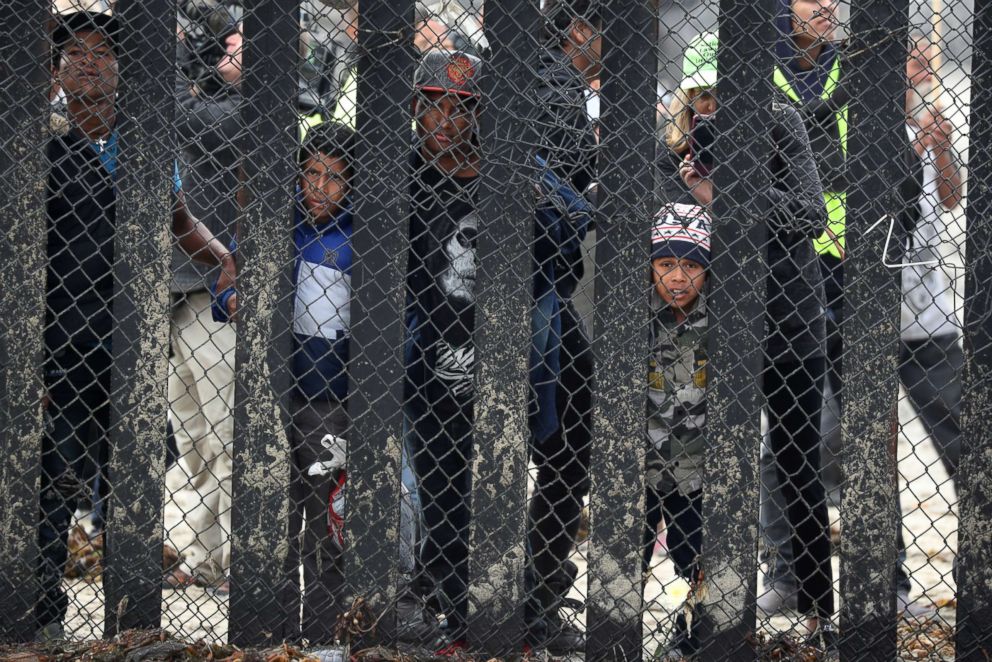
During a Saturday night rally in Michigan, Trump railed against the caravan as proof that the country's immigration laws are too lax.
"Are you watching that mess that's going on right now with the caravan coming up?" he asked the crowd.
Already this month, Trump called for more manpower to be deployed by the National Guard in Arizona, New Mexico and California to secure the border.
He said Saturday that it was clear that for too long immigration laws were "so weak" and the country's borders too porous.
"We don't have borders," he said. "We're going to build the wall. We're getting it. We have already started."
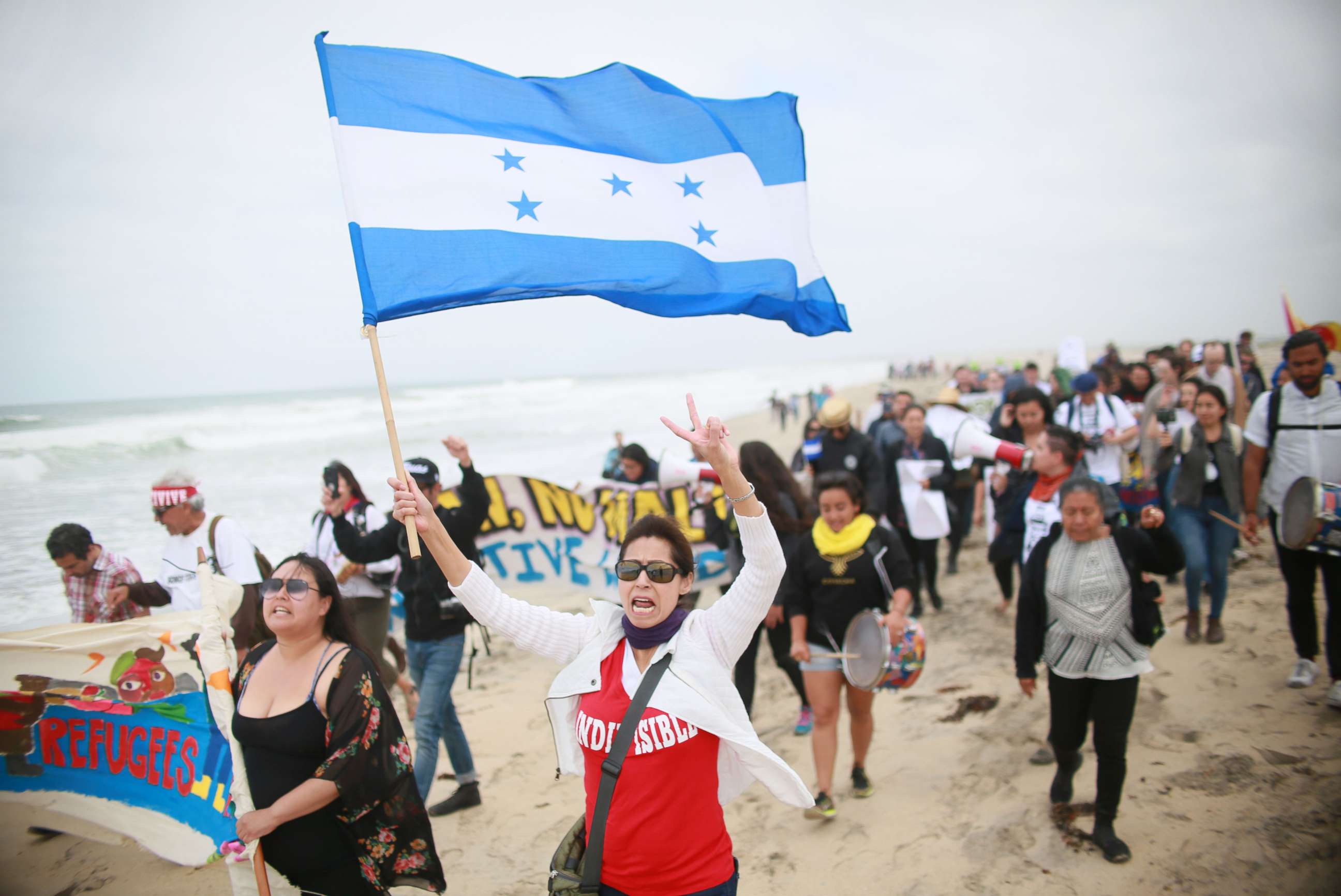
Viridiana Vidal, a spokeswoman for Pueblo Sin Fronteras, the group behind the so-called migrant caravan, said she expected approximately 100 to 200 people to attempt to cross from Mexico to the U.S. at the San Ysidro border crossing, where they planned to request asylum.
The group vowed in a statement that the 1,500 men, women and children who have at times joined the long journey were seeking peace and "fighting for a safe and dignified life."
"Now that our journey is ending, we demand that our rights as refugees, migrants and human beings be respected,” the group said in a statement.
They called the effort by President Trump to deploy the National Guard a way to "further militarize the U.S. southern border."
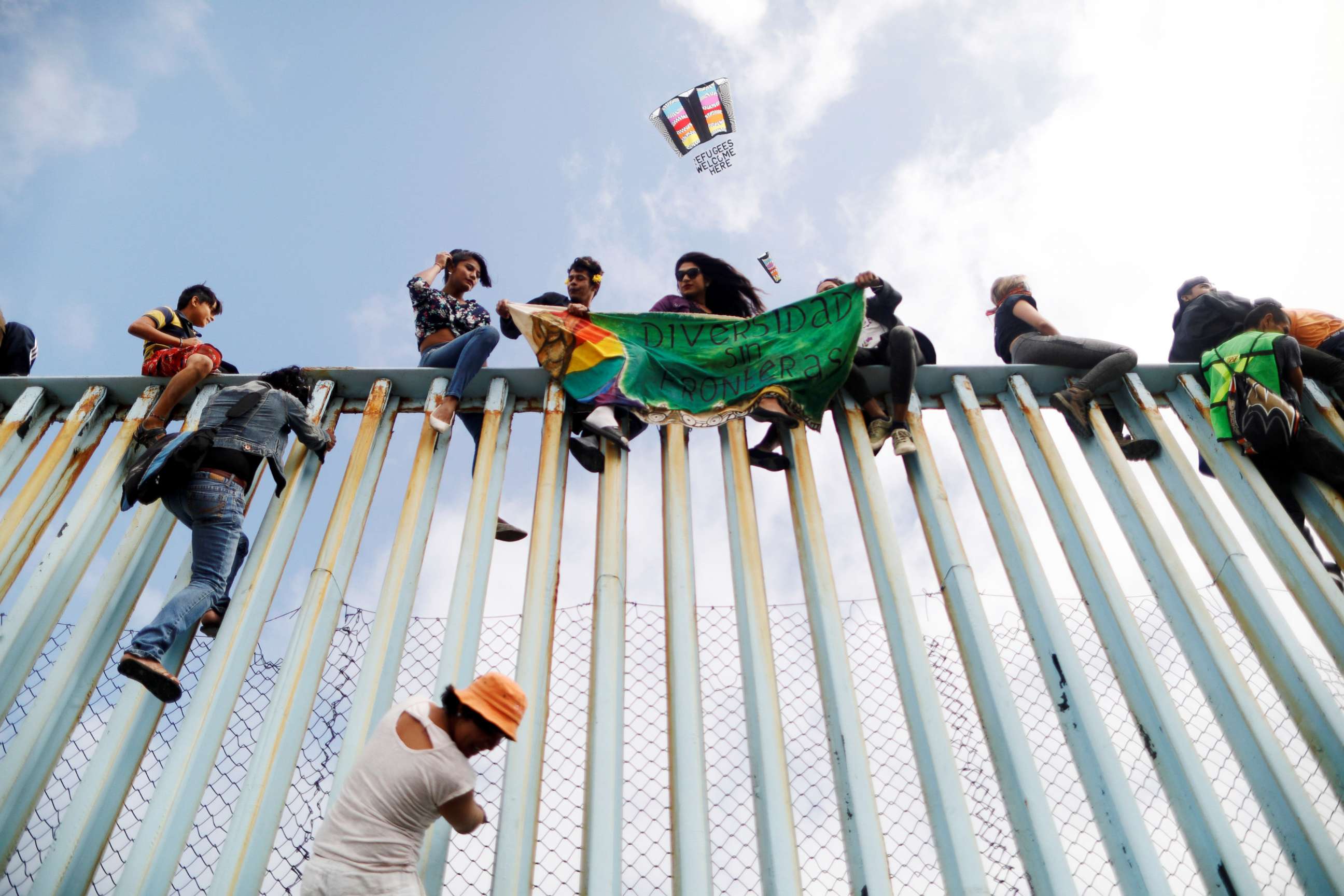
On Sunday afternoon, at least a dozen people climbed to the top of the border fence from the Mexican side and sat or stood on top. It isn't clear how many of them were part of the caravan group or inspired supporters.
They appeared to protest and also celebrate the caravaners coming to the United States.
U.S. authorities on Sunday stated that some people crossed over an especially vulnerable section of the border into the country over the past 24 hours to wade through a dangerous canyon.
Rodney S. Scott, chief patrol agent at the U.S. Customs and Border Protection, condemned members of the Central American caravan and accused them of having "illegally entered the United States without immigration documents by climbing over the dilapidated scrap metal border fence on either side of the San Ysidro Port of Entry."
He lambasted the caravaners who are mothers for putting themselves and their children in peril to traverse "illegally through a dark, treacherous canyon that is notorious for human and drug-smuggling."
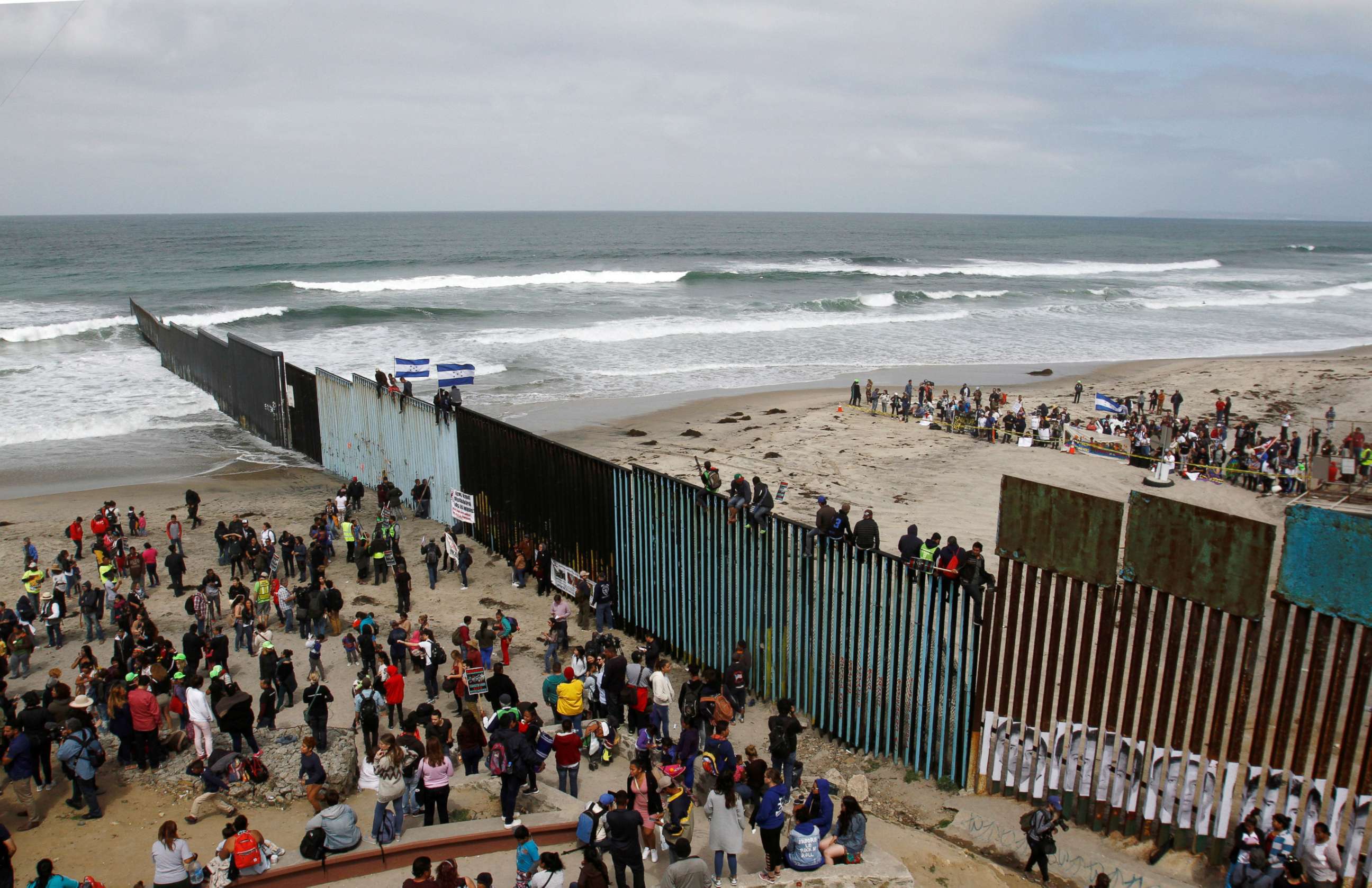
"As a father myself, I find it unconscionable that anyone would expose a child to these dangerous conditions, especially when there is a legitimate Port of Entry within a few miles of these dangerous canyons," Scott stated.
There have been counterprotests by a group calling themselves San Diegans for Secure Borders, who planned to make their presence known at Friendship Park that the asylum seekers are not welcomed, according to ABC News station KGTV.
Also, Department of Homeland Security Secretary Kirstjen Nielsen warned anybody attempting to breach the border illegally that they could face legal consequences and their cases could be adjudicated.
"If you enter our country illegally, you have broken the law and will be referred for prosecution. If you make a false immigration claim, you have broken the law and will be referred for prosecution. If you assist or coach an individual in making a false immigration claim, you have broken the law and will be referred for prosecution," she wrote in a statement released last week.
"Start Here" is a daily ABC News podcast hosted by Brad Mielke featuring original reporting on stories that are driving the national conversation. Listen for FREE on the ABC News app, Apple Podcasts, TuneIn, Spotify, Stitcher, Google Play Music, iHeartRadio -- or ask Alexa: "Play 'Start Here.'"
Follow @StartHereABC on social for exclusive content, show updates and more: Twitter, Facebook, Instagram.
ABC News' Barbara Friedman, Brad Mielke, Matt Gutman and Quinn Owen contributed to this report.